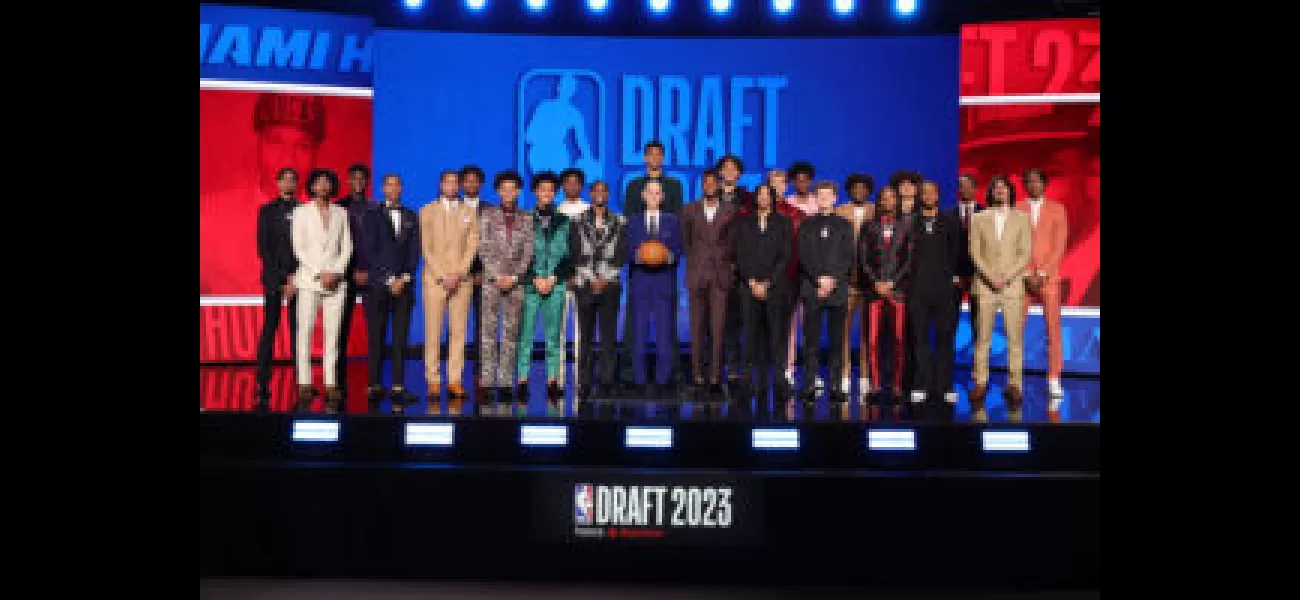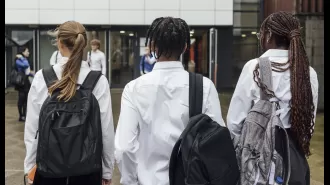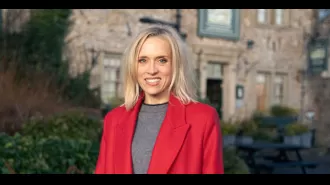Twitter users spark a conversation about whether the NBA has a colorism issue in its current draft class.
Colorism was discussed at the 2023 NBA Draft on Thursday night.
June 24th 2023.

Thursday night's 2023 NBA Draft sparked conversation about colorism in the Black community. Influencer and host Scottie Beam retweeted a video of the draft class posted by sports commentator Taylor Rooks, captioning it "Biracial girlllll." This was in reference to a parody song circulating on Twitter that celebrates biracial women.
The tweet was met with a flurry of responses, with many followers alluding to the lack of dark-skinned players drafted this year. One user tweeted, "My mom has been pointing out that’s all that’s in the NBA nowadays." Another said, "Light skin don’t make them biracial," and a tweeter with the handle @IamGregordeee, said he calls it “the #NewBeigeOrder.”
Statistics from Statista show that in 2022, a little over 71% of players in the NBA identified as African American, while 8% were two or more races. This further adds to the conversation about colorism in the Black community, which is a highly divisive topic. While some feel it should be kept alive, others think it’s time to wrap it up. As one Twitter user commented, "Only WE look for this in everything. Commercials, movies, cookouts, neighborhoods, restaurants lol. We’ve been doing this colorism game for decades. It will never end. I’m convinced."
The biracial topic has been studied for years, with celebrities and athletes speaking out about their experiences. In 2018, NBA Boston Celtics player Blake Griffin spoke about his biracial upbringing. Growing up in Oklahoma, Griffin said he was "too young to really understand" all the stares and comments he and his family would receive. As he got older, Griffin said there was less of a need to address the comments. “I also think there is a huge movement of people like me who don’t feel the need to answer that,” Griffin said. “That’s what’s special.”
The issue of colorism in the Black community has been brought into the spotlight yet again this week, with the episode of BET’s College Hill: Celebrity Edition featuring a physical fight between Joseline Hernandez and Amber Rose. Rose spoke of not feeling comfortable as a biracial woman, “I don’t fit in white spaces, and I don’t fit in Black spaces either. If I were to say something that is not appealing to a Black person, I would then be white in that moment.” This is yet another example of how colorism is a pressing issue in the modern day.
The tweet was met with a flurry of responses, with many followers alluding to the lack of dark-skinned players drafted this year. One user tweeted, "My mom has been pointing out that’s all that’s in the NBA nowadays." Another said, "Light skin don’t make them biracial," and a tweeter with the handle @IamGregordeee, said he calls it “the #NewBeigeOrder.”
Statistics from Statista show that in 2022, a little over 71% of players in the NBA identified as African American, while 8% were two or more races. This further adds to the conversation about colorism in the Black community, which is a highly divisive topic. While some feel it should be kept alive, others think it’s time to wrap it up. As one Twitter user commented, "Only WE look for this in everything. Commercials, movies, cookouts, neighborhoods, restaurants lol. We’ve been doing this colorism game for decades. It will never end. I’m convinced."
The biracial topic has been studied for years, with celebrities and athletes speaking out about their experiences. In 2018, NBA Boston Celtics player Blake Griffin spoke about his biracial upbringing. Growing up in Oklahoma, Griffin said he was "too young to really understand" all the stares and comments he and his family would receive. As he got older, Griffin said there was less of a need to address the comments. “I also think there is a huge movement of people like me who don’t feel the need to answer that,” Griffin said. “That’s what’s special.”
The issue of colorism in the Black community has been brought into the spotlight yet again this week, with the episode of BET’s College Hill: Celebrity Edition featuring a physical fight between Joseline Hernandez and Amber Rose. Rose spoke of not feeling comfortable as a biracial woman, “I don’t fit in white spaces, and I don’t fit in Black spaces either. If I were to say something that is not appealing to a Black person, I would then be white in that moment.” This is yet another example of how colorism is a pressing issue in the modern day.
[This article has been trending online recently and has been generated with AI. Your feed is customized.]
[Generative AI is experimental.]
0
0
Submit Comment





